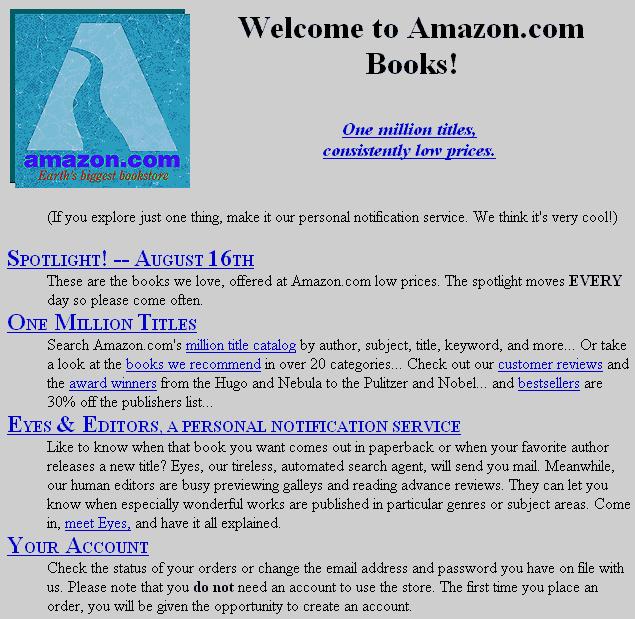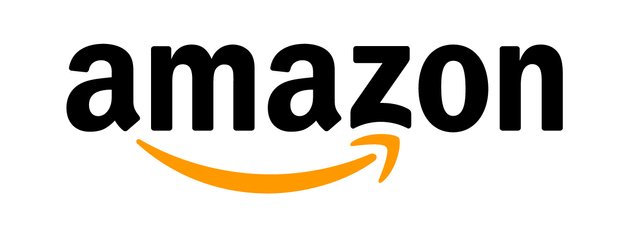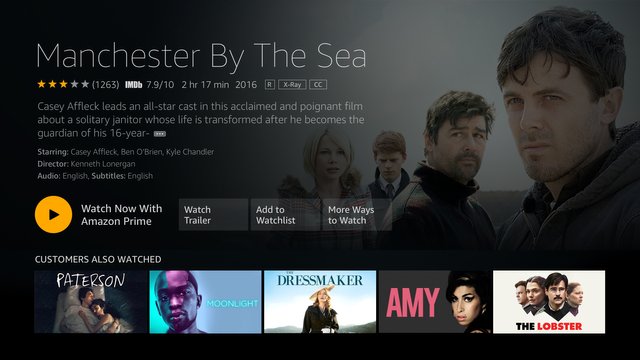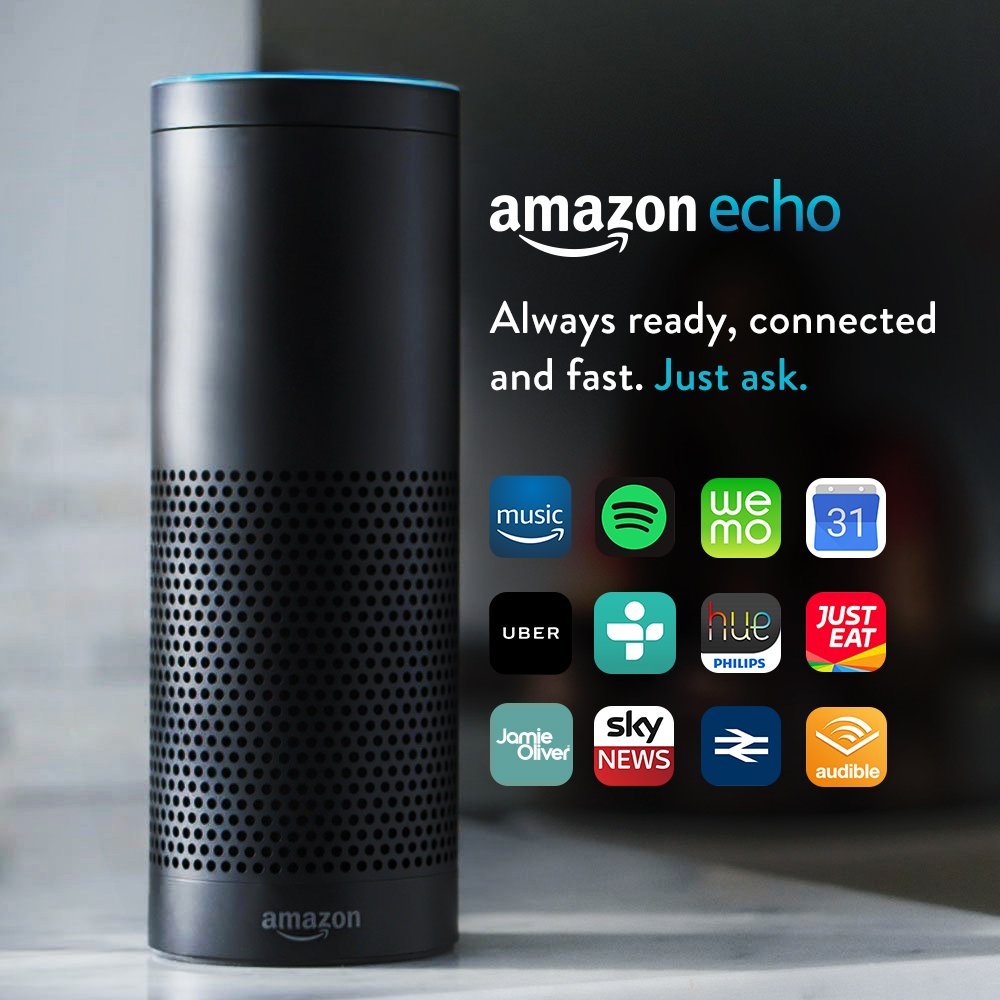Is Amazon Too Big? Monopolies and the Price of Convenience.

Introduction
I remember the early days of internet shopping. It was a terrible experience.

Wading through badly designed websites, each one entirely different, it was often hard to find what you were looking for even when you knew exactly what you wanted.
In some cases, even if you made an account with the site, you would end up having to enter your entire payment details each and every time you used it.
In some cases you would have to then telephone the business to confirm all the details once again.
Then there was the hassle of figuring out how much extra you would have to pay for delivery, followed by the long wait for what you bought.
Next day delivery (UK) was not expected in those days - even if it was available you had to pay a hefty price for it.
In those days many businesses saw internet retail as an extension of mail order catalogue shopping - in that business model it was not unusual to take 14 days to deliver items (sometimes even more).
The whole experience was often the exact opposite of convenient and sometimes enough to make you give up and just visit a physical store.

Then Amazon appeared.
It started as a bookshop that sold books at a discount. I used to use them to buy textbooks and marvelled at how quick and reliable they were.
Most importantly they got the user experience right (at least they did when I started using them).
It was easy to find what you wanted and there was no struggling with the site. The fast delivery was the icing on the cake.
Despite all of that I never imagined that they would grow to be the retail behemoth that we see today.
Dealing with the Devil - the Amazon Tax?
We use Amazon because they give us choice, value and most importantly convenience.

Many people I know use Amazon as their first stop for making any purchase. Often if they can't find something on Amazon they won't even bother checking elsewhere.
Others visit physical stores to look at items and then buy them on Amazon. It is no wonder that regular stores and vendors are struggling.
More and more smaller retailers have found that the only way that they can survive is by selling their items on the Amazon Marketplace and Amazon takes a large cut of what they sell.
If you have ever sold anything on Amazon you will know just how high their fees can be.
Some sellers call it the Amazon tax.
You don't have to sell your items on Amazon, but you may have to if you want to give them visibility.
Sometimes you have to "make a deal with devil" in order to survive.
At What Point Does A Business Become Too Big?

Most people would consider that a monopoly is a bad thing.
Monopolies have a tendency to stifle competition and even if not right away, the eventual result is less choice and higher prices for consumers.
Without any real competition the monopoly has less reason to innovate and improve - after all why bother, when you don't have to?
Amazon is unlike any other monopoly we have previously seen. In the past monopolies were generally confined to one or at most a few product areas or categories.
It simply wasn't feasible for any business to monopolise multiple areas at once.
The internet revolution changed that and Amazon were one of the first companies to understand that and take advantage of it.
The Monopoly of Monopolies - the Next Generation of Search
There are relatively few areas of the market that Amazon has not conquered and they tend to be very aggressive in moving into new markets.

First they sold books, then electricals and household items. More recently they have moved into groceries and TV/movie production.
They also own the main cloud computing platform (AWS) that many other businesses use as a vital part of their infrastructure.
Perhaps of even more concern is the fact that through their Amazon Alexa service they may have fired the first volley in the battle for the future of search with their AI assistant, Alexa.
People are concerned enough about Google's search dominance but it seems in this regard Amazon has the lead on Google.
Through devices like the Echo, Amazon is not just on your desktop or mobile device. Now they are physically in your home listening to everything you say.
How much of your information do they store? What exactly do they do with it? How secure is it?

Ultimately it gives them an even greater level of power over their customers than they currently have - as a recent murder investigation highlighted.
Despite these concerns the Echo devices have been a massive success and companies like Google and Apple are scrambling to catch up - but unlike Amazon, they are much more reliant on others to sell their devices.
Sure Apple has their physical stores but I doubt they can compete with the online selling might of Amazon, particularly when it comes to cheaper items. - The Echo is significantly cheaper than what Apple can offer and for good reason.
This is because unlike Apple, Amazon doesn't have to uphold a premium market image.
They sell to everyone and at all price ranges. Apple can't sell anything that looks even remotely "cheap". That is not their brand.
Google doesn't have the same problem but they also don't have their own stores and their previous attempts at hardware (e.g. Google Glass) have not exactly been successful.
Unless there are some changes it looks like Amazon could "eat Google's lunch" and there don't currently appear to be any viable competitors who can take them on.
Faustian Pacts and Bum Deals

In much of western mythology there is the idea of making a deal with the devil.
No matter what the exact terms are or what you get in return, the ultimate result is that you end up getting the "bum" end of the deal.
When you make a faustian pact, the devil is the only winner.
Whilst Amazon may not dominate groceries, TV/movies or music streaming to the degree that they dominate electricals/home items I think it is entirely possible that they will in the future.
The addition of Alexa based products and the potential for them gaining a big chunk of the (currently Google dominated) search market makes it even more likely.
People may argue about Google favouring their own content in search results but there is no doubt that if you want to buy something Alexa is only going to direct you towards Amazon products.
Conclusion
Even putting aside the business and competition issues, is it right that any one single organisation should have a hand in so many domains of life?
If everything you use, consume, watch, listen to is sold and even created by a single entity then how much power do they have over you?
Should they? Is that a good thing? Can we trust them to have our best interests at heart?

I don't have any answers or solutions to this issue, I just think that it is worth thinking about.
So far most governments have not had the guts to stand up to Amazon (or indeed most other mega-corporations).
At the most they have received a very mild corporate "wrist slap" for anti-competitive practices.
Further it seems most of us are so enamoured of the convenience that Amazon gives us that it makes it hard to turn away. -I know I am just as much a sucker for this as the next person - we are all time limited and have a tendency to take short cuts.
Next time you go to buy something from Amazon ask yourself if you are doing something that is good for you long term.
That short term convenience may cost us a lot more in the long term.
Thank you for reading


Amazon is my all time favourite shopping site.....it is the first site which comes to my mind whenever i want to purchase stuffs.....thanks for the post
Mine too but is good to use just one company in the long term?
Amazon has gotten to big. Soon the monopoly will be evident.
in terms of logistics, amazon delivers the quickest.
Excellent article and you bring up many valid concerns. Knowing that the sole purpose of a corporation is to make money, I think it's very easy to deduce that our best interests (the consumer) are not at the heart of the matter. There comes a point in time when a company gets so large that all their decisions in essence become binary in nature. It's all about making more money and taking a larger part of market share. That's it and that's all.
This goes against my capitalist beliefs, but I say yes that a company can become too big. There are exceptions to every rule and as the evolution of business continues to develop, we are seeing some of these pitfalls occur in real time today.
The shortsightedness of business is what's most concerning to me presently. The larger and medium sized corporations are inter-locked in their survival of the fittest economic warfare that they are failing to see the long term ramifications. They keep cutting, cutting, cutting, to gain a competitive leg up or to just keep pace with Amazon that eventually there will be no one left with meaningful employment to buy their products or services. You can only cut overhead in the form of materials so much that they are turning to human labor as their last line of defense. I feel that inflationary pressures are also largely to blame for this. The runaway money printing is decreasing the value of fiat dramatically, even though you'll hear this mentioned on MSM. The costs are simply going up for everything, so in order to remain competitive, they must cut costs somewhere, and human labor is the last line of defense.
We have a major problem on the immediate horizon with Amazon and some other large corporations. When Mcdonald's starts installing self serve kiosks to cut down on human labor to maintain a competitive advantage, your warning bells should start going off in your head. They're simply cutting their nose off to spite their face by thinking short term and not long term in solving their problems, but in their profit only way of thinking, it's makes perfect sense to them, until it doesn't
I live in New York - Manhattan to be specific. The vast majority of McDonald's have already installed these self serve kiosks. And it's not just fast food. Home Depot, CVS, Whole Foods, and just about every other large store utilizes self serve kiosks. One might say these aren't quality jobs to begin with, but that paycheck means something to a lot of people who live in the outer boroughs.
Darwins theory is becoming transparent.
Wow that is an amazing answer, worthy of a post in itself. Can't really add much.
The idea of short sightedness applies not just to business but to government too. It seems to be recurring theme in modern society.
It is partly also responsible for the type of boom and bust cycles that we see in major economies too.
boom bust cycles are also, always and everywhere a monetary phenomenon, (along with our human condition of course)
both business and government are shortsighted institutions by design.
Only the next earnings report, or the next elections matter
Not sure how this fits into the topic.
well, I am not sure how I am going to make you privvy to it then.
I did try, if you like, there's a more elaborate post in this same comment thread...
(responding directly to the comment that you did)
I am happy to try to explain further, but I don't understand why you think a discussion of the boom bust cycle, and it's ultimate or root cause doesn't fit into a discussion about same,
and well,
I am unsure where to go from here.
happy to stay out of your posts and comments if you would prefer
No don't stay out and I don't mean to seem harsh it is a fun discussion (I didn't mean any harm) I'm just not sure how it fits in directly and wanted you to elaborate:)
did you see the other comment and feel like you understood the connection?
Writing about these themes is not my game, only reading about them usually.
but I'll have to practise my communication skills around these topics, as I think I have plenty to add to this sort of conversation.
I think the effects of monetary policy are often dismissed as irrelevancies, when they are actually the root cause of the phenomenon in question, such as, in this case, the rise and rise of the mega-corp
would never have happened without the distortions caused by many years of zero interest rate policy.
No company could have done what amazon has done in a world with historically normal interest rates.
the capital would have wanted to see return on capital, if there was an alternative.
and as Bill Bonner calls it, Amazon is the river of no returns.
I'm not saying that amazon didn't do what they should have or anything else, just that they couldn't have done it without free money.
OK I get what you are saying now. Sometimes when there are a lot of comments it gets hard to keep track of what people said before and it can lead to confusion.
The interest rate thing is strange - I think there are a lot of knock on effects - not just in relation to megacorporations get larger amounts of money for next to nothing but also the effects on regular people.
The ultimate result is that regular people who make traditional savings and investments get very little returns. On the other hand the rich who can make their money work either by starting or investing in corporations have benefited.
One could argue that it creates a flow of money from the poor to the rich.
The solution to monopolies in Saskatchewan, where the geography is vast, and the population sparse, has been to create Crown Corporations. In Amazon's case, this is their single payment system to reach many retailers, which solves the problem of reinventing the wheel each time a vendor wants to collect payment online and ship goods.
It makes little sense to put in multiple electricity delivery wires, or multiple natural gas pipes to the same locations, so sharing the infrastructure becomes a social concern, especially when a single privately held corporation has that level of basic control. Amazon is clearly too big (to fail, ugh), so what are we going to do about ensuring the public has a hand in making it run equitably?
nothing, unless you want to buy into amazon and try and change it from the inside.
what is the idea of a business running equitably? it has been tried and mostly has failed, or eventually become so successful as to turn into the same old old
you almost got there and then you turned in a different direction. It is entirely a monetary phenomenon.
Zero percent interest rates mean that capital has no value, zero, literally.
This allows, nay, forces distortions such as the rampant off-shoring and automation as the money is free to organise these sometimes massive changes, and any company not going there will be punished by the shareholders, who as we know, usually don't have a long term vision.
And probably punished by various levels of government bureaucracy too.
Companies are not cutting off their noses to spite their faces, they are acting in their own best interests in an unheard of monetary regime.
Think about Nirp, for just one second (Negative Interest Rate Policy) the idea that you should pay every year to let someone else use your accumulated capital.
not in any reality does this make sense, yet there is some huge quantity of negative yielding bonds in the market right now. I just looked for a current figure and was not successful quickly.
but it's trillions.
just my two cents
Very enlighten post.
Do I think that Amazon has grown too big? Yes.
Are they providing a service that consumers want? Yes
Something that I always bring up with a discussion of Amazon becoming a monopoly. The markets that Amazon is entering, what are they doing to innovate that field to improve the customer experience and streamline the process?
Everytime that Amazon enters a new market, they are finding a better and more efficient way of how to run that business.
What is the most inconvenient thing about going to the grocery store? Waiting in a checkout line? Not anymore, just pick up your purchase in store and walk out, check out kiosk not required. Better yet, you can order online and have it delivered to your door.
What are these businesses doing to keep themselves competitive with the market? If someone comes along with a better way, of course eventually you're going to lose ground to them.
The market requires you to always grow and keep changing. When you become stagnant in your ways and think no one can touch you, that is when you lose.
Very critical areas that we all should think about. Small shopkeepers and startups have been failing due to the giants like Amazon resulting in unemployment and social disequilibrium. Though Amazon isn't in my country but recently Ali baba has decided to come to Pakistan and small local eCommerce websites have started selling their business to Ali baba. Even the the most famous eCommerce website daraz.pk in Pakistan is selling itself to Ali baba, the amount is in millions and they know that they can't compete with Ali baba.
But the sad story is we can't do anything to stop this!
Not true. Small businesses don't fail due to big business. They fail because they don't find a niche and market themselves to their own niche. Instead, they try to compete with the Big Boys. Find your own niche. Find success. And don't worry about the big boys, they'll take care of themselves.
I disagree. Unless you are in a service oriented business, niche or not, success will be much much harder.
Yes it appears there is a kind of unspoken agreement where Amazon will carve up the Western markets and Alibaba will take the Eastern ones.
Yep 100%
do you reckon? but can they be blamed for pulling customers
Not sure what you mean.
Yes, way too big IMHO. And AWS isn't making their competitors very happy either. I know Walmart was more than a little ticked over having their proprietary data sitting in the AWS cloud.
Interesting! Thanks for the link - I hadn't seen that story.
I had heard about the murder investigation and don't know who prevailed (Amazon or Law Enforcement) in terms of releasing the data.
What I'm most confused about is the apparent lack of concern people seem to have regarding their privacy. Do they think that it's entirely OK for a corporation to be able to listen in on every aspect of their lives, (i.e. what they say, where they shop, what they buy) as long as it's not a government doing the snooping?
I also read an article recently saying that the government is looking at Amazon as a potential anti-trust target.
My experience with them over the last 4 or 5 years selling items is that their fees, when you consider the deeply discounted shipping costs to get my products to Amazon's distribution centers & the logistical support they provide are competitive.
Amazon also deals with the myriad of different US State sales taxes for me (each US state has it's own version of something comparable to VAT).
Jeff Bezos may very well be the John Rockefeller of the 21st Century but I'm not in a position to pass judgement on the evil/righteousness ratio on either of them.
Seems most people don't care.
I have heard the opposite from other sellers. I think it may vary geographically - my own personal experience is that it is actually quite expensive and cuts significantly into what you make. Further for if you use Amazon fulfillment you have to pay them for storage too.
Some of these opinions may be coming from people who don't have a lot of experience actually running a profitable business on a day to day basis. There's a world of difference between selling something on Ebay as a hobby and actually having a business.
I can make a much better hamburger for less money than what I can buy one for at McDonald's. That doesn't mean I can run a profitable international business that employs tens of thousands of people.
I can't speak for the rest of the world but I can get some pretty good deals on restaurant equipment here in Murica buying it from failed restaurants. Being able to cook isn't a guarantee of success.
And I minimize the Amazon storage fees by monitoring my inventory and only shipping adequate quantities when they're needed. I have made mistakes and ended up paying long term storage fees, but I learned from my mistakes before it ruined me.
And, with that said, I'm selling out the inventory that I've got at Amazon and closing up. It's the competition who can buy in huge quantities at a much lower price that's taken the profit out of it for me.
Good points. Thanks for sharing your insight. I suppose the massive warehouses in the Far-East can outprice most other sellers.
That's where a lot of products are coming from anyway. alibaba does a good job of making them available but the cost differential between ordering 100 pieces of something compared to 1,000 requires a huge capital investment upfront in order to get competitive pricing.
It makes it almost impossible to start small and build something up.
That's the beauty of Steemit.
Your work reading, commenting, curation and posting is the sweat equity that can actually build into something.
Adam Smith, John Stewart Mill, and all of the classical economists of the 19th century defined a "free market" as being free from the rentier class "economic rent" and the landlords, from monopolists, and from banks and credit. The idea was that everyone would earn what they produce and that would be a fair economy.
That clearly is not what we have today, and never really did. Neoclassical economists define a "free market" exactly the opposite, and that is what we have today. The rentier class (oligarchs) own and run governments, oligopolies and monopolies are everywhere and control every major industry in almost every country, and the American economy and society is built on consumerism and credit, offered from the banks, and even some companies to help people to buy their goods and services. This is due to the fact that most don't earn enough in wages to buy the goods and services they want outright. I wrote briefly about this and included an excerpt from "The Wealth and Nations" as well as a video that is more in depth about corporations at this link. Check it out if you're interested. https://steemit.com/economics/@tgheretic/how-corporations-subvert-free-markets
Thank you I am trying to learn more about such things and will definitely check it out!
Great anaylsis, I used to work in an Amazon warehouse, and let me tell you. The scope of thier business is terrifing. They get millions in tax from states for being "job creators" then turn around and invest in droids that will replace all of thier warehouse works with machines. Many people praise Amazon for job creation but A GAINT workforce lay off is coming soon, they have the droid ready to go in an instant.
I'm glad I never worked for them! Was it really as bad an experience as the reports suggest?
It was the Orwellian man, they have the most bizarre work culture I've experienced. Career Amazon workers are often ex-military because the way they put prioritize and competition and self sacrifice is similar to the marines. I worked in the Pick department for 4 months, 12$ and hour, full time through a clandestine "temp agency" basically so they did not have to provide benefits. I only met one other person really because communication was discouraged, it detracted from productivity which they are obsessed with. Overall they offer a non-skilled person a livable wage, but it's pretty tiring and soul sucking. I'll write an article about it this week and post it here in the comments!
Sounds awful. Probably better if you send me the link in the chat - it will be easier to spot - just dm it to me.
No, Amazon is cool, awesome, great @thecryptofiend - they worked hard for their market position and are ongoing developing innovative things, listening to market and clients.
However I might be biased here lol. Great post though, hesr where youbcome from. Monopolies usually are a fact ti avoid.
I never said they weren't great - they are perhaps too good!
I agree with the cautionary note in your article but with the caveat that size and market position is a necessary precondition to becoming an industry leader and developing industry standards. One important aspect of the Amazon experience is the reliability and ease of returning items for refunds. After enduring many hassles with competitors, this aspect of the Amazon shopping experience is a difference-maker for me. Other businesses should learn from Amazon if they truly want to compete.
True but the problem is that once a company gets to Amazon's size they actively crush competition. No company is able to get in a position to compete.
i see your point